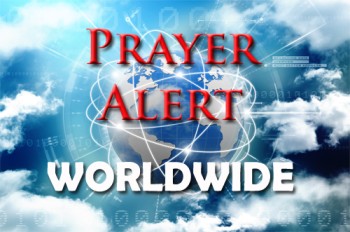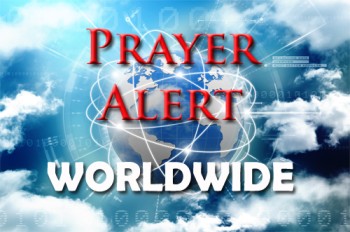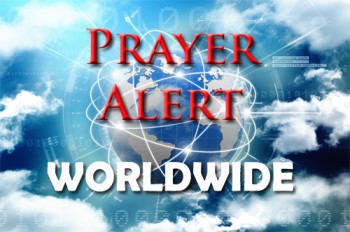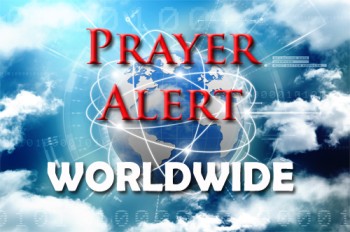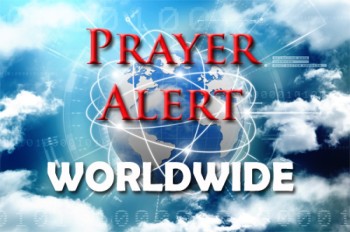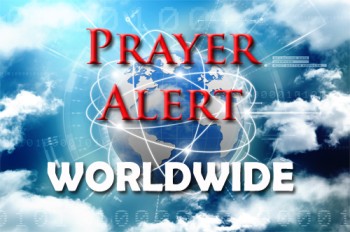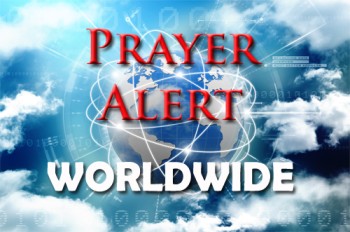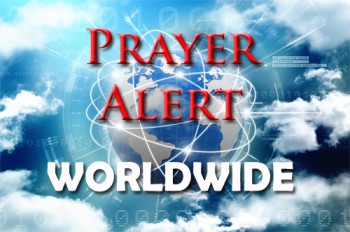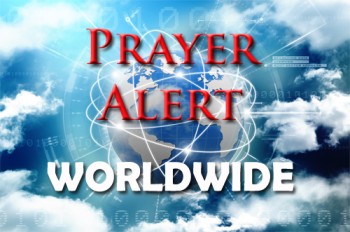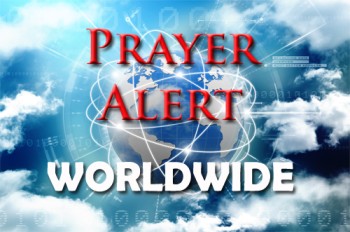Displaying items by tag: Africa
Nigeria: over 200 dead after massacres in Muslim-majority villages
A brutal massacre in Nigeria’s Kwara state left more than two hundred dead after gunmen attacked two Muslim-majority villages for rejecting extremist teaching. Witnesses said the attackers arrived on motorcycles, entered a mosque and shot worshippers, then moved house to house killing, kidnapping and burning residents. Many victims were tied before execution, and entire families were wiped out. Survivors fled, leaving only a few men to bury bodies among destroyed homes. Authorities blamed Boko Haram-linked militants, and the army deployed troops while local groups struggled to respond. The violence reflects Nigeria’s wider insurgency, where armed factions target both Muslims and Christians, spreading fear across communities. International partners are now providing intelligence support, yet the tragedy shows the urgent need for protection, reconciliation and healing for traumatised survivors who have lost loved ones and livelihoods. In related news, the USA is to send two hundred soldiers to Nigeria to train local forces: see Nigeria’s military recently claimed to have killed a senior Boko Haram commander and ten other militants in Borno.
Zimbabwe: cabinet approves extending president’s term till 2030
Zimbabwe’s cabinet has approved constitutional changes that could extend president Emmerson Mnangagwa’s rule until 2030, sparking strong opposition concern. The proposals would lengthen presidential terms from five to seven years and allow parliament, rather than voters, to choose the president. Supporters say the measures would ensure political stability and continuity for development programmes, but critics argue the reforms undermine democratic processes and require a national referendum. Since coming to power in 2017, Mnangagwa has faced growing scrutiny from civil society groups who fear weakening constitutional protections. He has presided over a collapsing economy which has suffered hyperinflation and unemployment, undermined by alleged corruption and cronyism. The opposition, fragmented and weakened after years of repression, has failed so far to mount significant resistance to the proposal.
Sudan: Yvette Cooper accuses the international community of failing vulnerable women
UK foreign secretary Yvette Cooper has warned that the world is ‘looking away’ from the humanitarian catastrophe unfolding in Sudan, urging global action to protect women and children. Visiting the Sudan–Chad border, she said the international community was failing Sudanese women, many of whom have suffered sexual violence since fighting erupted in 2023 between the army and the RSF. At the overcrowded refugee camp in Adré, most arrivals were women and children who had fled extreme brutality. More than twelve million people have been displaced, with millions crossing borders in search of safety. The UK has pledged new funding to support survivors, alongside partners including War Child, represented on the visit by Carey Mulligan. Calls are growing for stronger international pressure to end violence, halt the flow of arms, and pursue accountability. Meanwhile, the army claims to have broken through a blockade by RSF of the important town of Kadugli: see
Africa: climate change causing drought in the east, floods in the south
For reporter Haru Mutasa, covering climate change stories was not part of the plan, yet one assignment led relentlessly to another. A routine trip to Kenya’s Mandera County revealed a devastating drought along the Kenya–Somalia border. Dry riverbeds, starving camels and burned livestock graves told a grim story. Communities depended on infrequent water deliveries, sharing muddy water with animals. Pastoralists like Mohamed Hussein had lost most of their livestock, struggling to keep families alive. After leaving Kenya, Haru thought the story was over. Instead, heavy rains and floods swept across southern Africa. Soon she was deployed again, this time to Mozambique. In Maputo, neighbourhoods lay submerged in filthy floodwaters. Further south, highways had disappeared underwater and farmland had vanished beneath rising rivers. With dams upstream full, more flooding threatens. While the world looks elsewhere, these communities remain, facing a climate crisis that refuses to pause.
South Africa / Mozambique / Zimbabwe: 100+ dead after severe flooding
A national disaster has been declared in South Africa after weeks of torrential rain and severe flooding killed at least thirty people in the country’s north and caused widespread destruction. In Limpopo and Mpumalanga, the worst-hit provinces, homes, roads, and bridges have been washed away, leaving many families displaced. Heavy rains have also affected other provinces, while neighbouring Mozambique and Zimbabwe also suffered deadly floods, bringing the regional death toll to more than a hundred In Limpopo alone, damage is estimated at around £180 million. Rescue teams are still searching for missing people, including a five-year-old child believed to have been swept away when his home flooded. Hundreds of tourists and staff were evacuated from Kruger National Park during the crisis, highlighting the scale of disruption. As recovery efforts continue, communities face deep loss and an uncertain road ahead.
Uganda: troops in Kampala and internet services banned before election
On 15 January Uganda headed into a tense election as Yoweri Museveni sought a seventh term as president after nearly four decades in power. The final days of campaigning have been marked by heavy military deployments in the capital, Kampala, and a government-ordered suspension of mobile internet services, measures which opposition figures say signal growing authoritarianism. Museveni’s main challenger, Bobi Wine, has drawn strong support from younger, urban voters frustrated by unemployment, corruption and limited political change. Security forces say their presence is intended to prevent violence, but rights groups are concerned about intimidation and force used against opposition supporters. While Museveni retains strong backing in rural regions and is expected to win, critics fear the process will lack credibility. The aging president's authority has become increasingly dependent on the military led by his controversial son, Muhoozi Kainerugaba. The election highlights deep divisions in Uganda, as many citizens long for peaceful transition, accountable leadership and hope for a more inclusive future.
Equatorial Guinea: US payment to accept deportees sharply criticised
The US government has made a $7.5 million payment to the government of Equatorial Guinea as it seeks agreements to deport migrants to third countries, prompting sharp criticism from a top Democratic senator. Jeanne Shaheen said the payment, drawn from a migration and refugee assistance fund, raises serious concerns about transparency and proper use of taxpayer money; it far exceeds all US aid given to the country in the past eight years. She questioned whether funds intended for humanitarian crises should be transferred directly to one of the world’s most corrupt governments. The State Department defended the move as part of implementing the Trump administration’s immigration priorities. The payment raises questions about how the government is enmeshing its deportation agenda with other foreign policy goals, as well as the international leaders it is willing to trust. Immigration advocacy groups have called the policy a reckless tactic which violates due process rights and can strand deportees in countries with long histories of human rights violations and corruption.
Burkina Faso: new coup attempt thwarted
Authorities in Burkina Faso say they have thwarted a new coup attempt, underscoring ongoing political instability in the West African nation. Officials said the alleged plot was uncovered late on 3 January before it could be carried out, with security forces remaining on high alert. In a televised address, Security minister Mahamadou Sana said the plan involved coordinated efforts to destabilise the country through targeted assassinations of civilian and military leaders, including the head of state, Captain Ibrahim Traoré (see). Investigations are continuing and arrests have reportedly begun, with those implicated expected to face prosecution. The government praised intelligence services for preventing what it described as another attempt to destabilise the country. The alleged plot is the latest in a series of claims of attempts to remove Captain Traoré, who himself seized power in 2022.
Morocco: response to severe winter emergency
Authorities in Morocco are confronting a severe winter emergency as freezing temperatures, heavy rainfall, snowfall, and flash floods impact large swathes of the country. In response, they have launched a nationwide relief operation covering 28 provinces, aiming to assist around 73,000 vulnerable households with food supplies, blankets, and essential aid. Red weather alerts warn of as much as 80 cm of snow in the High Atlas mountains, while orange alerts signal intense rainfall across central and northern regions. The extreme conditions have already proved deadly: flash floods in the coastal city of Safi killed at least 37 people, damaged homes, and swept away vehicles. To mitigate further harm, the government has mobilised road clearance teams, emergency monitoring centres, and provincial vigilance committees to maintain access to remote and high-altitude areas: residents are being urged to remina cautious, especially when travelling. The relief efforts reflect Morocco’s broader strategy to protect vulnerable communities and mitigate the impacts of what authorities describe as unusually severe winter weather.
Sudan: former Janjaweed commander sentenced by ICC for Darfur war crimes
The International Criminal Court (ICC) has sentenced former Janjaweed commander Ali Muhammad Ali Abd-Al-Rahman, better known as Ali Kushayb, to twenty years in prison for war crimes and crimes against humanity committed in Darfur in 2003–04. Convicted on 27 charges, he is the first person tried by the ICC for atrocities linked to the Darfur conflict. Judges found that he both ordered and personally participated in attacks aimed at ‘wiping out’ non-Arab communities, including killings, mass displacement and widespread sexual violence. Survivors testified to villages being burned and families destroyed. The ruling comes as Sudan faces renewed conflict, with the Rapid Support Forces (successors to the Janjaweed) accused of carrying out similar abuses today. While the ICC hopes the sentence will offer justice and deterrence, experts question its immediate impact, noting that millions of survivors remain displaced and key figures, including former president Omar al-Bashir, are still wanted. The verdict nevertheless stands as a significant acknowledgment of long-ignored suffering.
